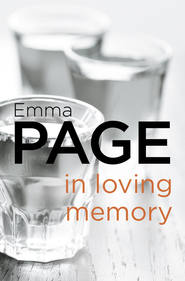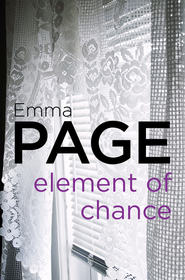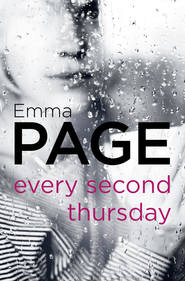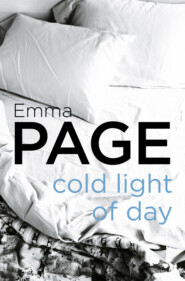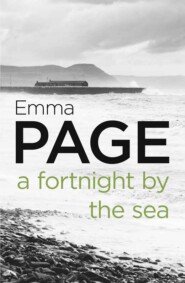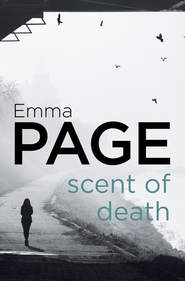По всем вопросам обращайтесь на: info@litportal.ru
(©) 2003-2024.
✖
Hard Evidence
Автор
Год написания книги
2018
Настройки чтения
Размер шрифта
Высота строк
Поля
The missing relative was a girl of twenty. As soon as they told him her name, Julie Dawson, bells began to ring in Lambert’s brain. By the time they added her address, Honeysuckle Cottage, near Millbourne, he was almost certain. He asked if he might see a photograph.
They couldn’t produce anything very recent but showed him some snapshots taken during Julie’s last visit two years ago. Lambert looked down at the pretty face, the impish smile, the beautiful hair.
‘I’ve met this girl,’ he told them. They looked startled. He gave them a brief sketch of his encounter with Julie by the roadside near Calcott House. After a burst of astonishment the Eardlows took up their story again.
It seemed that Julie was an only child, born late in her parents’ marriage. Her father – fifteen years older than her mother – had been a first cousin of Mrs Eardlow. Both Julie’s parents were now dead and the Eardlows were her only living relatives. Julie worked for the Millbourne Advertiser as a telephone sales clerk; she had been there three years.
During her first year in Millbourne she had visited the Eardlows two or three times. Two years ago she had moved into lodgings at Honeysuckle Cottage. Since then she had written a few lines occasionally and had sent cards at Christmas and on their birthdays, but she had never once visited them.
They had replied without fail to her letters and cards, giving her their bits of news, repeating the invitation to come for a visit, a weekend, or a longer holiday. They had always been fond of Julie, had always been on good terms with her and her parents. As far as they knew, Julie was happy in her job, had settled down well at Honeysuckle Cottage, liked her landlady, a Miss Audrey Tysoe.
The Eardlows had celebrated their golden wedding in the first week of June. Julie had long known about the planned gathering of friends. She had definitely told them she would be there. Not only would she attend the party but she would stay with them for a night or two. This had been settled months ago and had been referred to on both sides more than once since then.
‘We were very disappointed when she didn’t come.’ Mrs Eardlow looked on the verge of tears. ‘Very surprised, too. She didn’t even write or phone.’ They had thought at first that the date had somehow slipped her mind, but she would remember after a day or two and they would hear from her.
But the days went by and they didn’t hear. They began to wonder if she was ill, or had met with some accident. In the end Mrs Eardlow rang Honeysuckle Cottage, not without misgivings. The Eardlows came of a generation who had grown up without telephones. It was only in very recent years, since their health had grown frail, that they had had a phone installed. They regarded it as an instrument to be used in emergencies and with due respect for the cost of calls. Nor had they any wish to appear to be prying into Julie’s life.
It was the first time Mrs Eardlow had spoken to Miss Tysoe; she had found her pleasant enough. Miss Tysoe told her Julie wasn’t there, she hadn’t been there for some time, she was on indefinite leave from her job at the Advertiser. She had gone for a holiday to Calcott House in May. Miss Tysoe didn’t know her present whereabouts but she wasn’t anxious; she was confident Julie would turn up again when it suited her.
The Eardlows were at first reassured by this but after mulling it over for a day or two their uneasiness surfaced again. Why should Julie have decided to go on indefinite leave? Had there been difficulties at work? And what about the money side of it? How was she managing?
So they finally rang the Millbourne Advertiser and spoke to the proprietor, Mr Fielding. He told them Julie had not been in touch with the office since going on leave in May. She had given no reasons for wishing to take extended leave and she had not been pressed on the matter. She had always been a good worker and the Advertiser was happy to accommodate her in this instance. They were sure she would return when she had resolved whatever it was that had made her ask for leave. Her job would certainly be waiting for her; the Eardlows need have no worries on that score. Fielding had no idea of her present whereabouts.
Again, when the call was over, the Eardlows felt reassured to some extent, but again, after a day or two, their anxieties sprang up as strongly as ever.
This time they phoned Calcott House and spoke to Mrs Marchant. She told them Miss Dawson had stayed at the hotel from May 10th to May 16th. There had been no trouble or upset of any kind during her stay; she paid her bill on the day she left. The only address the hotel had any note of was her Millbourne address, Honeysuckle Cottage, but Mrs Marchant seemed to remember that Miss Dawson had said something on leaving about going to a caravan. No, Mrs Marchant had no idea where the caravan might be. She couldn’t even be certain she was correct in associating that remark with Miss Dawson; it could have been some other guest. No, the hotel had had no communication from Miss Dawson after she left; there had been no mail or phone calls for her since then. Nor had anyone come to the hotel asking to see her.
By now the Eardlows found themselves very far from reassured. They talked it over for another couple of days, arguing back and forth. Probably there was nothing at all amiss – but if it later turned out that there was, they would never forgive themselves if they had just let the matter go.
In the end they decided with a good deal of trepidation to write to the Cannonbridge police and leave it up to them to judge if any inquiries were necessary.
Lambert told them he would report back to his Chief. ‘I’ll let you know what’s decided,’ he added as he stood up to leave. ‘In the meantime, try not to worry. Young women can be very impulsive. Julie could turn up any day, astonished to hear you’ve been so anxious about her.’
‘I dare say you’re right,’ Eardlow agreed. ‘We’re not able to get about much these days, we do tend to sit and chew things over. I suppose we’re inclined to get things out of proportion.’
They thanked the sergeant profusely for coming over to see them. They insisted on going with him to the door, shaking his hand on the threshold. Mrs Eardlow looked up into Lambert’s face as he took her frail old fingers into his strong, warm clasp.
‘I’m still not happy in my mind,’ she told him earnestly. ‘Whatever kind of sudden notion Julie may have taken into her head, she’d never have forgotten our anniversary.’ She shook her head with feeble force. ‘Not Julie. Never in a million years.’
CHAPTER 5 (#)
Chief Inspector Kelsey was about to drag himself off to a conference for a few days and wasn’t looking forward to the prospect. He certainly wasn’t disposed to feel overmuch concern for Miss Julie Dawson. ‘Skittish young females,’ he said to Lambert on a note of trenchant censure. Over the years he had come across many of the ilk, light-minded creatures who woke up one bright morning and took it into their heads to skedaddle without a word to relatives or friends – to give those same relatives and friends a good fright, as often as not, or merely to gain attention. Or indulging themselves in a fit of the sulks after a few cross words. Or scarpered with the latest boyfriend. Or simply decided to cut loose for a while. Needless work for the police, needless worry for the family. ‘All it takes is a postcard,’ he said sourly. ‘Or a phone call. Never enters their silly heads.’ No doubt Miss Julie Dawson would stroll blithely in where she belonged when she’d had enough of the sulks or the boyfriend.
He was strongly minded to do nothing whatever in the matter. But there were the Eardlows, old, frail, anxious. ‘Better look into it,’ he told Lambert grudgingly. ‘But don’t go making a big production number out of it, just fit it in with everything else.’ Lambert knew the form well enough, he’d been over this kind of ground often before. He knew precisely how much time to spend, how much to do, just enough to be able to reassure the relatives the police were reasonably certain the girl had come to no harm. And that was what he set about over the next few days. His first step was to discover via a series of phone calls which estate agents in the area handled holiday lettings of caravans. He found three and went off to visit them all. He was in luck. At his first call, an office in the centre of Cannonbridge, the manager produced records which showed that a caravan had indeed been rented by a Miss Julie Dawson, giving the Honeysuckle Cottage address. She had taken the caravan from Tuesday, May 16th, to Saturday, May 27th. She had paid in full, in advance, by cheque, on Monday, May 15th. He could supply no further details himself, he didn’t attend to such bookings, but he passed Lambert on to the female clerk who had dealt with Miss Dawson. The woman did recall the matter. Two details in particular stood out in her memory: Miss Dawson’s unusually beautiful hair and her insistence on the cheapest possible let. She didn’t mind where the caravan was or how basic its amenities but she wanted to move in as soon as possible. The clerk was able to suit Miss Dawson immediately with the cheapest caravan on their books. It was old, isolated, furnished and equipped to a bare minimum, and in consequence difficult to let. It belonged to a fishing enthusiast, a bachelor, who kept it principally for his own use, whenever he could get away from his city job to fish the local streams. It was vacant at the time Miss Dawson made her inquiry; the next booking was for May 27th. Miss Dawson took it for the whole of the interim.
The caravan stood on a small farm a few miles from Calcott village. The clerk gave Miss Dawson directions for finding the farm; the keys were kept at the farmhouse. ‘Something else, I remember,’ she threw in suddenly. ‘Miss Dawson didn’t stay quite the full time at the caravan. And she didn’t return the keys to the farmhouse. They were dropped in here.’ She had found them in the mail on the Friday morning, May 26th; they hadn’t been sent by post, they had been delivered by hand. She particularly remembered because there had been no note, no word of any kind with the keys. They had simply been put into an envelope and pushed through the letter box. Every key ring carried a tag giving the name and address of the estate agent, together with a number identifying the property to which the keys belonged.
There had been no further contact of any kind with Miss Dawson. The clerk had no idea where she might have gone after leaving the caravan.
The following afternoon Lambert drove out to the farm, a small, old-fashioned, man-and-wife enterprise that appeared far from thriving. A stream ran between overhanging willows along one boundary. Close by, Lambert saw a sizable stretch of shadowy, gloomy-looking woodland, overgrown and neglected.
He walked across the cobbled yard to the farmhouse. His knock at the door was answered by a harassed-looking woman in late middle age. Her hands were covered in flour, wisps of hair stuck out around her face. She didn’t invite Lambert inside but answered his questions on the doorstep, briskly and without embellishment, already half turned back towards the demands of her kitchen. Her husband wasn’t in, he was out at a farm sale, she couldn’t say when he’d be back.
Yes, she remembered Miss Dawson very well; that is, she couldn’t recall the name but she did clearly remember a girl staying in the caravan in the latter part of May. It was the only time she could remember a pretty young girl staying in the caravan on her own, and she too had been struck by the beauty of the girl’s hair. Miss Dawson had also been unusual in that she had never called at the farmhouse for milk, eggs or vegetables, had never stopped by for a chat, never asked if it was all right if she took a stroll round the farm. ‘In fact, I only ever saw her twice,’ the woman added. ‘The day she came, when she called in here for the keys, and one other time, a day or two later – I saw her in the distance, walking towards the wood.’ The caravan stood at quite some distance from the house and wasn’t visible from it.
The woman was paid to clean the caravan after each let. There had been nothing untoward when she had cleaned through after Miss Dawson’s stay; she had found nothing left behind.
The caravan was currently occupied by a young couple with a baby. They had gone out for the day and wouldn’t be back till it was time to put the baby to bed. They would have taken the caravan keys with them; there was only the one set. She jerked her head. Even if she had a second set she wouldn’t have been happy about letting the sergeant take a look inside in the absence of the young couple. But he was welcome to walk over there, to see the location. He must excuse her from going with him, she was up to her eyes just now.
Lambert followed her directions. The caravan was in a secluded spot, well out of sight and earshot of both the farmhouse and the road, provided with an even greater degree of privacy by a thick screen of trees. The caravan curtains had been left closed.
He stood for some moments glancing about. The breeze carried with it the scent of clover fields. From the topmost branches of a nearby tree rang out the clear, bell-like notes of a blackcap.
The situation was certainly pleasant enough. Apart from the glowering presence of the wood.
Next day Sergeant Lambert found himself free in the middle of the morning to run over to Millbourne. The town was somewhat smaller than Cannonbridge, thirty miles away.
As he neared Honeysuckle Cottage the road took him through undulating countryside, past deep gorges running between thickly wooded hills, green copses, bracken-covered slopes, old gravel pits and quarries filled with water, hedgerows decked with wild roses.
Because of the phone call she had recently received from the Eardlows, Audrey Tysoe wasn’t surprised at Lambert’s visit. She was busy in the garden when he arrived but she broke off readily enough. Lambert noticed her limp. Habitual, he guessed, probably from some old injury; she used no stick, wore no plaster or bandage that might suggest a more recent mishap.
She took him into her charming cottage, sat him down and gave him coffee. No, she wasn’t anxious about Julie, she was sure she would turn up again before long. She had left most of her things at the cottage – that must surely mean she intended returning, if only to collect her belongings. She had lodged with Miss Tysoe for two years. Before that she had stayed with three or four other landladies but hadn’t been happy with any of them.
Miss Tysoe didn’t normally take in lodgers. She had been in charge of personnel at the Advertiser until her retirement and Julie had told her she hadn’t been able to find digs she was happy in. ‘I offered to take her in here, temporarily,’ Miss Tysoe explained. ‘Till she could look round to find somewhere she really liked. But we both found it worked well, her being here. I liked having someone around in the evenings and at weekends, and Julie liked living out of town; it was what she had been used to before she came to Millbourne. She wasn’t a girl who wanted to go out much in her free time. So she stayed on.’
But they had never been close. Both tended to be self-sufficient, and Julie was not by nature a confiding girl. It was a satisfactory relationship of good-natured live and let live, with mutual benefits. There had never been any friction between them.
Lambert told her he now knew that Julie had stayed in a caravan for several days after leaving Calcott House. No, Miss Tysoe had no idea where Julie might have gone at the end of her caravan stay. She wasn’t entirely surprised at Julie taking herself off on indefinite leave; she had been showing signs of restlessness for some time. She had made remarks about the Advertiser being small fry, Millbourne being a very provincial place, Honeysuckle Cottage being in a backwater.
From her years in personnel work Miss Tysoe had garnered a good deal of experience of young women and she believed she could read the signs. ‘I think it could have been her twentieth birthday that sparked it off,’ she hazarded. ‘She seemed to feel it was some kind of milestone. When she first came to Millbourne she hadn’t long lost her mother. She badly needed a breathing space to come to terms with adult life. And I suppose, coming more or less straight from school into a newspaper office, from a little village to a town, it all seemed new, interesting and exciting, being out in the world on her own, learning a job, earning money.
‘But that was three years ago. By this time she must feel on top of her job, it can’t be much of a challenge any more. She’s probably beginning to want something livelier and more demanding. She might feel she’s completed one stage of her growing up – after all, at twenty, she’s no longer an adolescent. I imagine she’s ready to spread her wings again, take a good look at her life and how she intends to spend it. She’ll come back, I’m positive, when she’s reached some decisions.’
‘What about boyfriends?’ Lambert wanted to know. ‘A pretty young girl, she must surely have boyfriends.’
But Miss Tysoe was positive there was no one. Nor did Julie have any close girlfriend. There had been two girls at the Advertiser she had been friendly with at one time but both had left some time ago. As far as Miss Tysoe knew, Julie hadn’t kept up with either of them, nor could she say where either was now living. She was sure Julie had made no special friend since then. ‘Most of the young women at the Advertiser are married, with young families,’ she pointed out. ‘They have their own very busy lives to lead, apart from their jobs.’
Lambert asked if she could tell him the name of Julie’s bank and she was able to supply it. She also told him Julie had a savings account with a building society, but she didn’t know which one. Nor did she know if she had a post-office account.
Lambert asked if he might look through her things. She took him upstairs to a good-sized room, comfortably furnished as a bedsitter. ‘She often stayed up here, reading or watching TV,’ Miss Tysoe told him. She indicated a portable television set, well-filled bookshelves. ‘If she wanted to join me downstairs, she was always welcome.’
Lambert went over to the bookshelves and stooped to read the spines. Old bound editions of the Strand Magazine, handsome copies of Edgar Allan Poe, Wilkie Collins, Conan Doyle, Rider Haggard, John Buchan, Dorothy Sayers, Agatha Christie. He picked out a book at random and opened it. An ornamental ex-libris plate bore a name and date written in faded ink: Gilbert Michael Dawson. March, 1935.
He picked out other books here and there. Some bore the same bookplate with dates ranging from the thirties to the sixties. Others carried more modern plates with Julie’s name – written sometimes in a schoolgirl hand, sometimes in a more adult style, with more recent dates.
The room was very neat. ‘That’s the way she left it,’ Miss Tysoe said. ‘I’ve never had to clear up after her, she’s always been tidy.’
Lambert glanced through the contents of the wardrobe, through drawers and cupboards; he opened the bureau. He found no bank books, no chequebook or credit cards. No letters or diaries, no personal papers of any interest.






